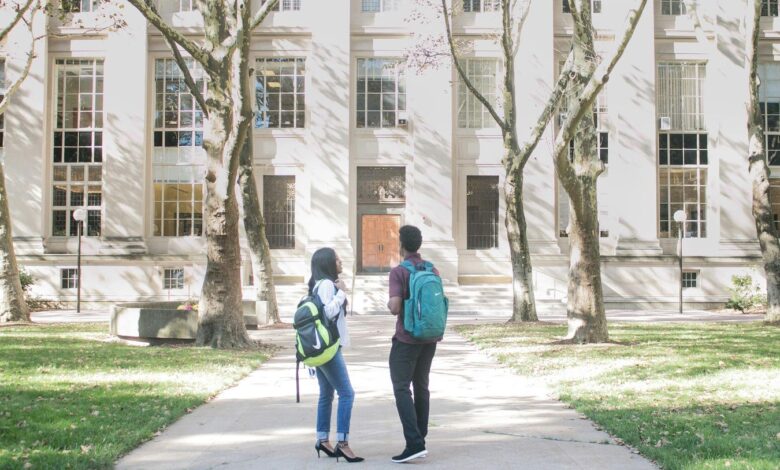Reimagining Education In The Age Of AI

📝 usncan Note: Reimagining Education In The Age Of AI
Disclaimer: This content has been prepared based on currently trending topics to increase your awareness.
Students going to college
The Jopwell Collection
At the Executive Technology Board, we’ve been reflecting on how #education must evolve in a world shaped by #AI. Much of what worked in the past is no longer sufficient: Higher education was designed for a time when information was scarce, when expertise was locked away in libraries, and when tools for discovery and application were limited. Today, knowledge is instantly accessible, and AI is not just a new tool—it is reshaping the very definition of work.
The pace of change is extraordinary. Traditional curricula are being obsoleted faster than ever before. Skills that once served as a career foundation are now outdated within years, sometimes months. And AI is not only transforming existing roles but also creating entirely new categories of work whilst at the same time, rendering others obsolete. The question is no longer whether education needs to change, but how quickly it can.
Last week in London, we had the privilege of hosting the Dean and Associate Dean in computer sciences at Northeastern University. The conversation was inspiring – NU’s work offers a glimpse of how education can be reimagined for this new era. Their perspective underscored a vital truth: preparing students for the world ahead requires moving beyond incremental updates to curricula and toward a fundamental rethinking of what education itself should be.
From that discussion and broader reflections at our global technology think tank, three imperatives stand out:
1. From centers of learning to facilitators of learning
Universities can no longer view themselves simply as repositories of knowledge. Instead, they must evolve into facilitators of continuous learning. This means building systems and cultures that are agile — able to incorporate new knowledge, tools, and practices as quickly as industries themselves are evolving. Students won’t succeed because they memorized a body of facts; they’ll succeed because they developed the capacity to adapt, unlearn, and relearn.
2. AI as a multidisciplinary foundation
One of the most exciting promises of AI lies at the intersections: healthcare and AI, design and AI, sustainability and AI, law and AI. The future of innovation will come less from siloed expertise and more from multidisciplinary collaboration. Universities must therefore embed AI literacy across disciplines — not just computer science programs but also the social sciences, arts, and professional schools. Students of law, medicine, business, and even the humanities need a working fluency in AI, because it will define their fields as much as it will define technology itself.
3. Integrating real-world experience into the curriculum
Learning cannot remain confined to the classroom. The most effective education models are those that blend theory with real-world practice. Northeastern’s co-op program is a leading example: students alternate between classroom study and full-time industry roles, graduating not only with degrees but also with significant hands-on experience. This kind of integration is no longer optional — it’s essential in an era where employers expect graduates to contribute immediately, and where technologies shift too quickly for classroom learning alone to keep pace.
Building an ecosystem for lifelong learning
Perhaps the biggest shift we need to embrace is that education no longer ends at graduation. In the age of AI, every professional will need to continuously refresh their skills, adapt to new tools, and reinvent themselves over the course of their career. Universities, industry, and policymakers must collaborate to create a true ecosystem for lifelong learning. Micro-credentials, modular certifications, and continuous access to new learning pathways will be the new norm.
This is not just a challenge for academia. It is a collective responsibility. Businesses must invest in workforce development. Policymakers must create frameworks that support reskilling at scale. Universities must reinvent their models. And learners themselves must take ownership of continuous growth. The future of education will not be about teaching students what to learn, but preparing them how to learn—continuously, adaptively, and across disciplines.




